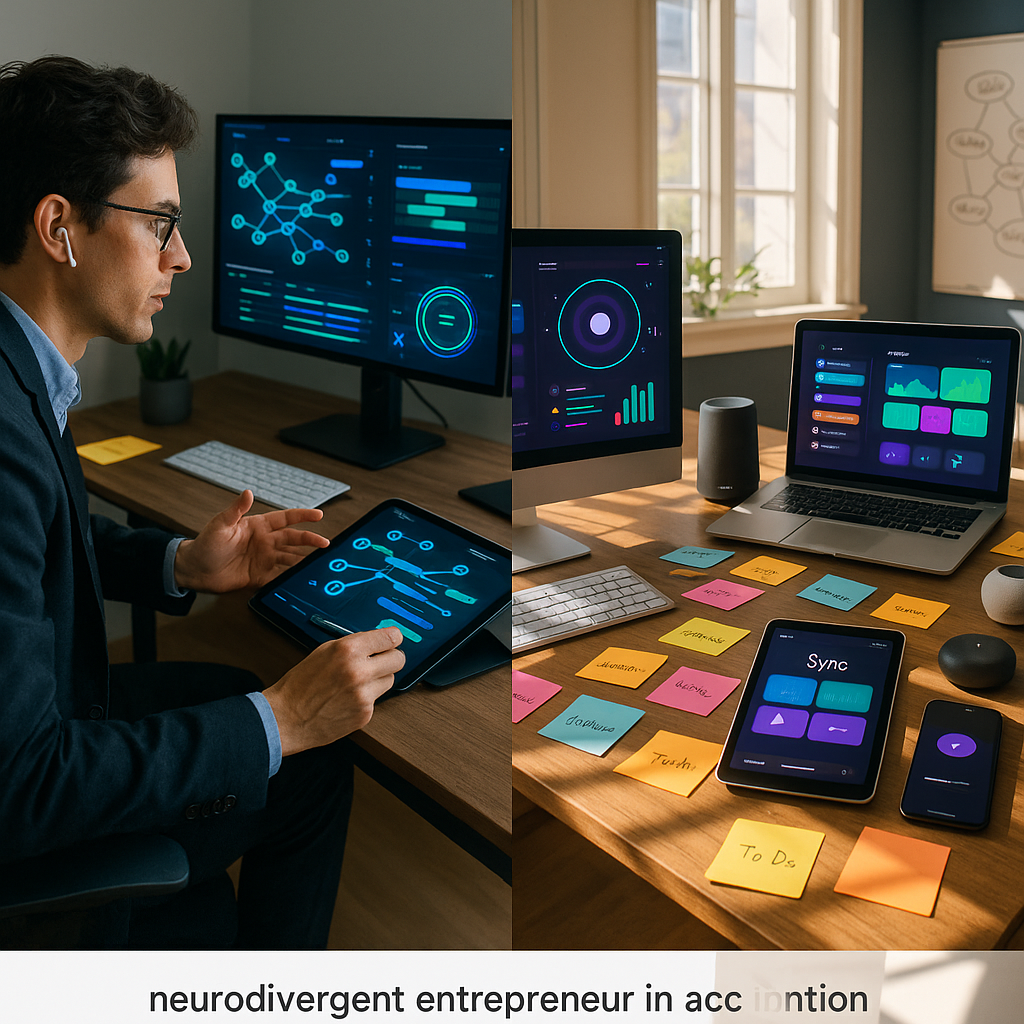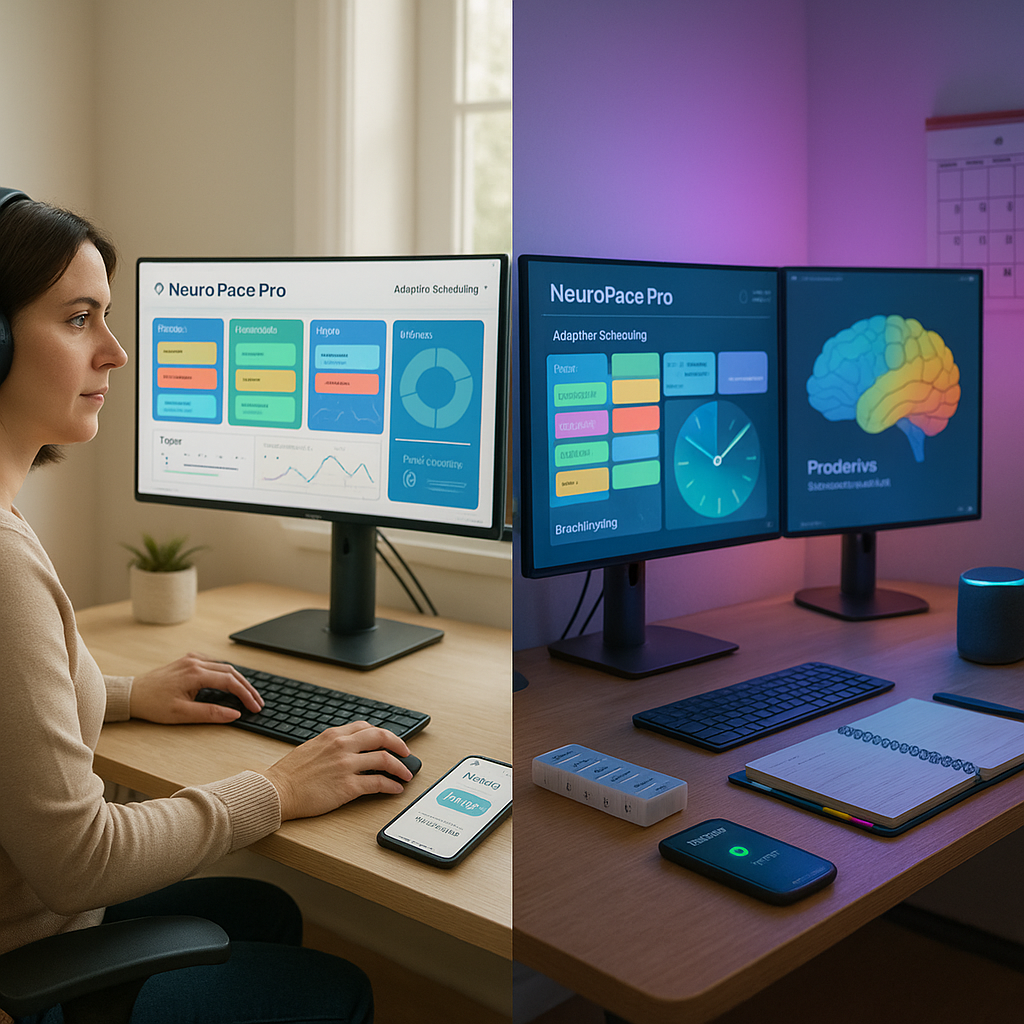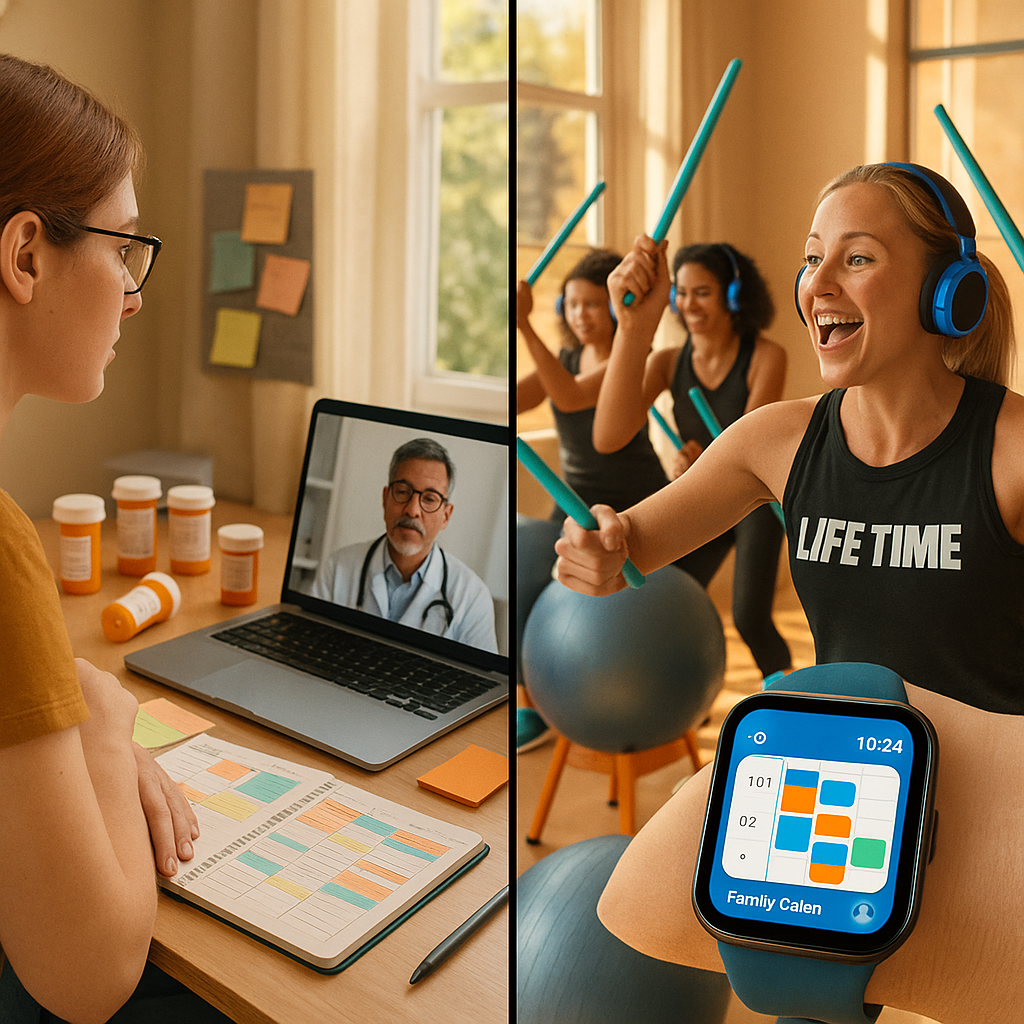Key Takeaways
- ADHD as Advantage: Entrepreneurs are embracing neurodivergence by reframing challenges, such as rapid idea generation and hyperfocus, as competitive strengths.
- AI and Automation Tools: Custom AI assistants and automation systems help manage overwhelm, increase productivity, and support smarter business growth.
- Authentic Lived Experience: Personal acceptance and storytelling foster community support and help break stigma around “non-standard” brains.
- Systems for Sustainability: Unique, ADHD-friendly workflows enable founders to avoid burnout and build scalable businesses while maintaining well-being.
- Forward Momentum: Increasing demand for neurodivergent-focused consulting reflects a broader shift toward inclusive, tech-driven entrepreneurship.
This article highlights real stories, tools, and strategies that help neurodivergent minds thrive in business and beyond.
Introduction
Neurodivergent entrepreneurs are redefining success in business by transforming challenges such as ADHD and AuADHD into strategic advantages. With strengths like hyperfocus and unconventional problem-solving, amplified by custom AI tools and supportive systems, founders are managing overwhelm and scaling their businesses sustainably. This approach demonstrates how embracing diverse minds sparks innovation and community in today’s dynamic markets.
Reframing Neurodivergent Traits as Business Superpowers
Hyperfocus, when directed effectively, allows neurodivergent entrepreneurs to analyze complex problems and seize new opportunities. Jessica Chen, founder of AI startup NeuraTech, stated that her ADHD-driven hyperfocus enabled her to spot pattern-matching applications overlooked by neurotypical developers.
Pattern recognition and divergent thinking often lead to innovative product development and creative problem-solving. Marcus Rodriguez explained that what others might interpret as distraction, he experiences as rapid connection-making, an ability that contributed to building his successful sustainability consulting firm.
Research from the Neurodiversity in Business Institute indicates that entrepreneurs with ADHD are 300% more likely to launch multiple successful ventures compared to neurotypical founders. This advantage is attributed to reduced fear of failure and greater comfort with uncertainty.
Technology and Systems That Work With Your Brain
Modern workflow tools and AI assistants can complement neurodivergent thinking styles, supporting rather than constraining individual strengths. Automation platforms such as Zapier and Make help entrepreneurs maintain consistency while channeling creative energy productively.
Voice-to-text tools and digital mind-mapping applications facilitate rapid idea capture during periods of high energy. Sarah Wei, founder of EdTech platform LearnDifferently, uses Otter.ai and Miro to turn her brainstorming sessions into actionable project plans.
Time-blocking apps with flexible rescheduling, like Motion and Reclaim.ai, support natural work patterns. These tools adapt to energy fluctuations and help sustain overall productivity without enforcing rigid schedules.
Building Sustainable Growth Systems
Successful neurodivergent entrepreneurs prioritize designing businesses that align with their strengths rather than adhering to conventional methods. Michael Torres organized his consulting practice to capitalize on hyperfocus for client work, dedicating slower periods to business development.
Documentation and standard operating procedures serve as supportive rather than restrictive elements. Alex Thompson, whose project management firm exclusively employs neurodivergent professionals, noted the importance of creating systems to catch what his brain might overlook.
Outsourcing and delegation strategies are often structured around complementary skills instead of traditional hierarchies. Many neurodivergent founders collaborate with detail-oriented partners or hire virtual assistants trained in ADHD-friendly workflows.
Strategic Partnerships and Team Building
Neurodivergent entrepreneurs frequently build teams that capitalize on diverse cognitive styles. Tech founder Rachel Kim intentionally pairs big-picture thinkers with detail-oriented colleagues, resulting in more robust product development cycles.
Communication frameworks tailored for neurodivergent teams can enhance effectiveness for all employees. Companies like DataFlow Systems reported higher productivity after adopting clear documentation and flexible communication channels originally designed for neurodivergent staff.
Remote and hybrid work models provide customized environments that optimize focus and creativity. Workplace consultant David Chen emphasized that creating workspaces to match sensory needs is not only accommodating but also a smart business practice.
Leveraging AI and Automation
Artificial intelligence tools provide particular benefits for neurodivergent entrepreneurs by automating routine tasks and preserving cognitive energy for innovation. Natural language AI assistants support consistent customer communication without depleting creative resources.
Project management AI adapts to individual work styles, ensuring tasks are not overlooked. Productivity expert Lisa Martinez stated that the most effective tools are those that enhance natural tendencies rather than restrict them.
Many neurodivergent founders have found success with AI-powered content creation tools, which help maintain marketing consistency during both high and low-energy periods. These systems sustain brand voice while accommodating fluctuating capacity for content production.
Conclusion
Neurodivergent entrepreneurs are transforming the business landscape by creating systems and teams that harness their natural strengths. The adoption of AI, automation, and flexible collaboration tools demonstrates how inclusive design advances productivity, creativity, and sustainable growth across industries. As this trend continues, greater innovation and support for diverse ways of thinking are likely to reshape business practices.





Leave a Reply